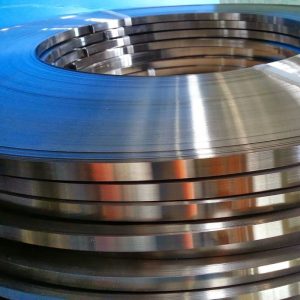Is stainless steel strip coil 309s magnetic?
03-07-2024
Stainless steel, a widely used material in various industrial applications, is often chosen for its corrosion resistance and durability. Among the various types of stainless steel, 309s is a specific grade that is often employed in high-temperature environments due to its excellent oxidation resistance.
However, the question of whether stainless steel is magnetic often causes confusion. Especially when it comes to specific stainless steel types, such as 309S, the problem becomes more complicated.
1) First of all, We need to understand the basic magnetic properties of stainless steel.
The magnetic properties of stainless steel are mainly affected by its composition and organizational structure. Usually, stainless steel contains elements such as chromium (Cr) and nickel (Ni), which can affect the magnetic properties of the material. In stainless steel, the main role of chromium is to increase the corrosion resistance of the material, while nickel is mainly used to stabilize the austenitic structure of the material, making it non-magnetic.
2) Now, let's look at this particular type of stainless steel, 309S. 309S is an austenitic stainless steel, its main components are chromium and nickel.
Due to its high nickel content, 309S generally exhibits non-magnetic properties at room temperature. However, it is worth noting that under certain conditions, such as cold working or heat treatment, 309S May be partially converted into a martensitic structure, which will cause the material to exhibit certain magnetic properties.
3) In addition, even non-magnetic stainless steels, such as 309S, may exhibit magnetism under extreme conditions.
For example, at extremely high magnetic fields or very low temperatures, the electron spin and orbital motion in stainless steel may be affected, causing its magnetic properties to change.
4) Therefore, although 309S stainless steel is usually non-magnetic under conventional conditions, it may exhibit certain magnetic properties under certain conditions.
In practical applications, if you need to ensure that stainless steel materials are completely non-magnetic, the appropriate material type and processing process should be selected according to the specific application scenarios and requirements.
In summary, stainless steel coil 309S is theoretically non-magnetic, but in practical applications may be affected by various factors and show weak magnetism. Therefore, when using 309S stainless steel coil, the appropriate materials and processing methods should be selected according to the specific application scenarios and requirements.








